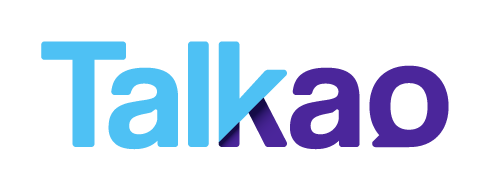
Language proficiency is, without a doubt, one of the strongest assets a candidate can bring to a job application. As we’ve mentioned in another article, companies prioritize candidates who speak more than one language. But is it always appropriate to highlight this ability on your resume? How should you do it? And more importantly, when can you honestly say you’re fluent in a language?
All these questions frequently cross the minds of job seekers and those looking to grow professionally. Language skills can be a double-edged sword — especially if you’re not completely fluent and can’t honestly say you’re bilingual.
To clear up all these doubts, at Talkao we’ve researched this topic with several recruitment and staffing experts. We sat down with some of the most renowned recruiters across various industries. We’ll share their perspectives on language skills and their role in securing a new opportunity. It’s a really insightful lesson — pay close attention!
What counts as language proficiency?
When it comes to employment and job searching, skills and abilities are extremely important — in many cases, they become the key differentiator when choosing candidates for a particular role. One of the most valued skills is, without a doubt, language proficiency.
For many companies, the ability to speak, write, and understand more than one language says a great deal about a candidate — not just as a way to communicate with clients, suppliers, or collaborators. However, with the growing precision of automated translation technologies, this is becoming less relevant.
In other words, companies are increasingly less dependent on bilingual employees and turning toward predictive AI translation instead. This is precisely where tools like Talkao’s AI Translator can make up for the lack of a multilingual team.
So, why do many companies still require language skills in their job descriptions? The answer goes much further than just ability — it’s a matter of attitude. Let’s see why.
Language proficiency as a key factor in mental agility and candidate’s acumen
Language proficiency involves much more than just the ability to speak it. It includes reading comprehension, writing, grammar, and listening skills — this is the technical definition of language mastery. However, from a human perspective — especially in human resources — it goes much further.
When selecting a candidate, companies pay close attention to their potential and attitude. This lets them gauge how effective, adaptable, and resilient a person might be in different situations. In other words, attitude often matters more than aptitude.
If we view aptitude as an ability and attitude as a mindset, then knowing a language is a key asset. According to experts, people who are proficient in a second language possess the following intrinsic abilities:
Mental agility and sharpness
We’ve covered this before, but it’s worth emphasizing. When you learn a new language, your brain rewires itself — strengthening its neuronal connections to acquire a new skill. It may sound complex, but there’s a strong scientific explanation for this.
When you learned to speak as a child, your brain connected with its most advanced areas — those involved in memory and mental processing. The cerebral cortex — the highest, most sophisticated region of the brain — is responsible for reasoning and conscious thought. The more it’s stimulated, the faster and more efficient these neuronal connections become. This is precisely what recruiters appreciate when choosing a candidate with strong language skills.
Memory and critical thinking
Neurology studies have revealed a strong connection between Wernicke’s and Broca’s areas and the limbic association. In simple terms, this means that the areas responsible for processing language are closely tied to mental speed. In other words, the greater your command of a language, the faster your thinking. Memory plays a key role in this process — the more vocabulary you learn, the more your memory expands. What’s the use of a strong memory? It’s a crucial foundation for critical thinking.
For companies, an employee with strong critical thinking skills is much more solution-oriented. This means they can solve problems faster and more independently.
Empathy and social skills
Empathy is a key quality in any workplace — not just for delivering better customer service, but for fostering strong collaborative relationships. This is why companies pay close attention to their employees’ ability to connect with others. When you become proficient in a new language, your empathetic abilities grow as well.
This happens because the process of learning a new language helps foster humility and understanding. But empathy isn’t the only social skill that improves with language learning — the ability to collaborate and contribute to team efforts also increases.
Loss of stage fright and better networking skills
Stage fright isn’t something that only occurs when you’re up on a stage. It can be a barrier when presenting a product or service, and even during phone conversations or small meetings. An employee who’s unable to speak up or communicate their ideas effectively can pose a significant challenge for a company. This is why companies look for confident, enthusiastic, and outspoken individuals.
When you learn a new language, you’re forced to make presentations, speak in public, and step outside your comfort zone. This process gradually helps you lose your fear of embarrassment — a transformation that brings many benefits in a workplace setting. Furthermore, more self-assured people are better at networking — that is, building valuable relationships with others.
Finding alternative solutions or “thinking laterally”
We often talk about lateral thinking as thinking outside the box. This expression refers to the search for solutions that break free from conventional, “two-dimensional” thinking. In other words, those with strong lateral thinking skills are more likely to come up with innovative solutions — ones that may seem impossible to others, simply because they aren’t tied down by conventional thinking.
This ability is closely related to language mastery. Why? Because during the process of learning a new language, you’re forced to find multiple ways to express yourself and to reach the same result through different paths. This makes your thinking more flexible and adaptable — a key advantage for companies. An alternative solution can make a huge difference, adding tremendous value to a business.
We’ve gone over many of the benefits that come with language proficiency, haven’t we? And you’re probably wondering how and when to highlight this on your resumé. While everything we’ve explained is crucial, it’s time to get practical…

Language proficiency on your resume
If you want to stand out from other candidates for that job you’re looking for, demonstrating your language skills is key. As we mentioned previously, language proficiency can make a significant difference on your resume. It shows you’re prepared to collaborate in an increasingly global workplace — and this can improve your chances of landing your dream job.
Now it’s time to learn where and how to include your language skills on your resume. We’ll guide you step by step to make sure they appeal to recruiters and help you become their top choice. We’ll also share some practical tips to keep your presentation appropriate, honest, and relevant for the position you’re applying for.
The importance of highlighting your language skills
In today’s ever-more international workplace, language skills can make a huge difference in your career. According to a study by the University of Cambridge, being proficient in a second language can increase your employment chances by up to 30%. And this is just with a single additional language. Furthermore, speaking more than one language lets you apply for higher-paying positions.
Showing you speak another language signals you’re a quick learner and someone open to adapting to new workplace environments. It also shows you’re more flexible and adaptable. So, even if you have the same qualifications as another candidate, demonstrating your language skills can be what sets you apart. The job may be yours — or nearly!
Where should you list your language skills?
You’re probably wondering: Where should you include this information? The most appropriate place is usually in your “Skills” or “Competencies” section, alongside your technical abilities or certifications.
You can also create a separate section called “Languages” or “Language Proficiency”. Here, list the name of each language alongside your level of fluency. If you’re in Europe, use the Common European Framework of Reference for Languages (CEFR) (A1, A2, B1, B2, C1, C2). For example:
- English — C1 (Advanced)
- French — B2 (Upper-Intermediate)
- Italian — A2 (Basic)
This format allows recruiters to quickly gauge your language skills without needing to dig through your entire resume. However, there are other international certifications you can highlight if they’re relevant. If that’s your case, you can do something like:
- English (80/120 TOEFL iBT)
For more information, check our article on international certificates. It’s worth reviewing before adding them to your resume. Here’s how:
How should you express your language proficiency?
In addition to stating the language and your level of fluency, you can highlight your certifications or study-abroad experience. For instance:
- English — C1 (Advanced), Certificate in Advanced English (CAE), University of Cambridge.
- French — B2 (Upper-Intermediate), Erasmus Exchange at La Sorbonne, Paris.
This step adds credibility to your profile and shows recruiters your ability to translate both written and oral communication — a key consideration during the hiring process.
Do you need to highlight your language skills?
If the job expressly requires a certain language, or if it’s a key requirement for the role, then you should highlight them. Furthermore, you can include your language skills in your professional summary, for instance:
“Multilingual professional with C1 in English and B2 in French, able to negotiate, write, or communicate with clients across multiple international markets.”
This brief summary lets recruiters appreciate your language proficiency at a glance. Remember: the first phases of the selection process are often brief, and there may be no interview until you pass these initial filters. So make sure everything is clear and easy to identify.
The importance of honesty
Being honest on your resume is one of the most important rules. And yes — before you think about adding something you can’t back up, we already explained in another article the unusual case of Valeska and the Polish candidate, who got away with adding a language they barely knew. If you haven’t read it, it’s worth a look — it shows just how much AI-assisted translation can aid you in a tough spot.
Ultimately, adding a language you barely speak or are just beginning to learn can backfire — especially if the recruiter realizes your skills aren’t up to the level you claim. This could undermine your credibility and cut short your application process, keeping you from demonstrating your other abilities.
The best approach is always to be honest and realistic about your level of knowledge. You can highlight your enthusiasm and willingness to learn or improve, without falling into deception.

Continuous language training and the help of technology
In today’s increasingly dynamic world — especially in the workplace — language proficiency is crucial. Showing your interest in learning new languages can make a significant difference in your professional future. Adding new languages or certifying your current skills helps you stand out from other candidates and lets you apply for more attractive employment opportunities.
Additionally, learning new languages opens doors to new career paths, adding even greater value — something companies frequently appreciate in their employees. According to experts, being multilingual can lead to a salary increase of up to 20%. So this is something you should take very seriously. Fortunately for you, today you can accelerate your language learning and improve your employment prospects. How?
Talkao’s AI-Powered predictive translation technology
Of course, language proficiency is key to improving your employment opportunities — but they’re also a way to access higher-paying positions. We’ve been discussing this throughout the article, but there’s another important factor we hadn’t yet mentioned: you can speed up the learning process with Artificial Intelligence.
Talkao’s AI-powered predictive translation technologies enable you to learn faster and more efficiently. Here’s how:
Audio translation
With Talkao Translate, you can improve the accuracy of your audio translations. Combine this with real-time translation, and you’ll gain a clear advantage when communicating in another language.
Text translation
Talkao’s AI text translator lets you translate documents, messages, and even text within images — all thanks to its camera translation feature. This powerful tool lets you translate without needing to transcribe manually. Plus, it can even decipher texts in different alphabets or handwritten notes.
Video translation
With Talkao’s video translator, you can translate multimedia or live stream content with impressive accuracy. It doesn’t just provide greater precision in audio translation — it also runs in the background, ensuring it won’t interrupt your video’s performance.
As you can see, improving your language proficiency is easier than ever with Talkao’s AI-powered tools. Take a step toward your dream job and transform your future, once and for all.










Newsletter